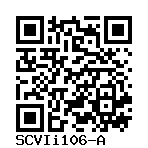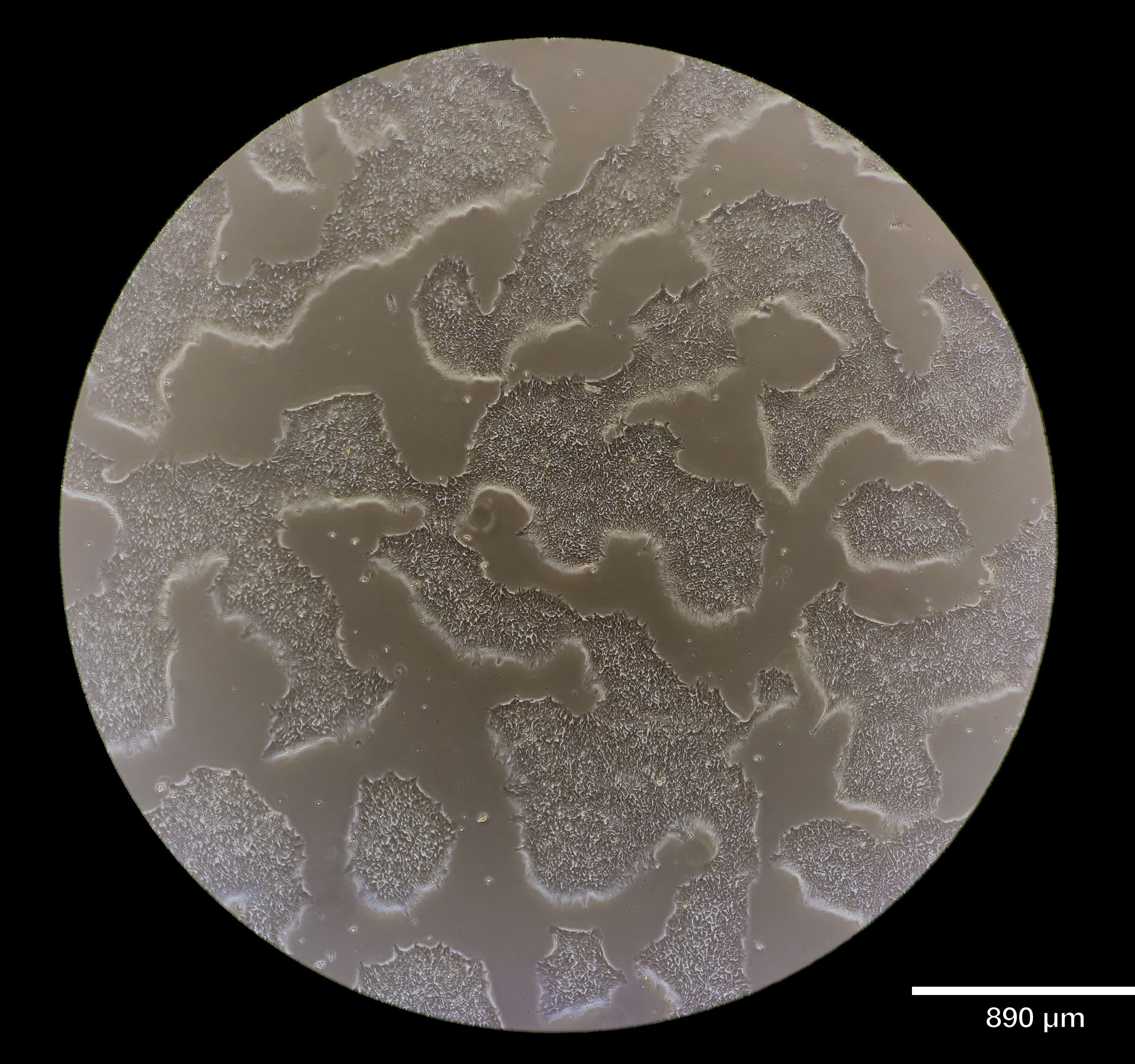SCVIi106-A
General
Cell Line |
|
| hPSCreg name | SCVIi106-A |
| Cite as: | SCVIi106-A (RRID:CVCL_D6LN) |
| Cell line type | Human induced pluripotent stem cell (hiPSC) |
| Similar lines |
IMBAi021-A (TSC107J #5, TSC#14 clone 107J#5) Donor's gene variants: TSC2, TSC2 Donor diseases: Tuberous Sclerosis IMBAi022-A (TSC112#4, TSC#24 clone 112#4) Donor's gene variants: TSC2, TSC2 Donor diseases: Tuberous Sclerosis IMBAi023-A (TSC#5 clone 32S, TSCp5#32S) Donor's gene variants: TSC2, TSC2 Donor diseases: Tuberous Sclerosis IMBAi023-B (TSC#5 clone 30S, TSCp5#30S, TSC98#30S) Donor's gene variants: TSC2, TSC2, TSC2 Donor diseases: Tuberous Sclerosis ZJSHi001-A (ZJSHi-KCNB1) Donor's gene variants: KCNB1 Donor diseases: developmental and epileptic encephalopathy, 26 |
| Last update | 28th February 2024 |
| User feedback | |
Provider |
|
| Generator | Stanford Cardiovascular Institute (SCVI) |
External Databases |
|
| BioSamples | SAMEA115358165 |
| Cellosaurus | CVCL_D6LN |
| Wikidata | Q127384235 |
General Information |
|
| Publications | |
| * Is the cell line readily obtainable for third parties? |
Yes Research use: allowed
Clinical use: not allowed
Commercial use: not allowed
|
Donor Information
General Donor Information |
|
| Sex | female |
Phenotype and Disease related information (Donor) |
|
| Diseases | A disease was diagnosed.
|
Karyotyping (Donor) |
|
| Has the donor karyotype been analysed? |
Yes
46 chromosomes
|
Other Genotyping (Donor) |
|
| Is there genome-wide genotyping or functional data available? |
Yes
|
External Databases (Donor) |
|
| BioSamples | SAMEA115348278 |
Ethics
| Has informed consent been obtained from the donor of the embryo/tissue from which the pluripotent stem cells have been derived? | Yes |
| Was the consent voluntarily given? | Yes |
| Has the donor been informed that participation will not directly influence their personal treatment? | Yes |
| Can you provide us with a copy of the Donor Information Sheet provided to the donor? | No |
| Do you (Depositor/Provider) hold the original Donor Consent Form? | No |
| If you do not hold the Donor Consent Form, do you know who does? | Yes |
| Please indicate whether the data associated with the donated material has been pseudonymised or anonymised. | pseudonymised |
| Does consent explicitly allow the derivation of pluripotent stem cells? | Yes |
| Does consent prevent CELLS DERIVED FROM THE DONATED BIOSAMPLE from being made available to researchers anywhere in the world? | No |
| How may genetic information associated with the cell line be accessed? | Controlled Access |
| Will the donor expect to receive financial benefit, beyond reasonable expenses, in return for donating the biosample? | No |
| Has a favourable opinion been obtained from a research ethics committee, or other ethics review panel, in relation to the Research Protocol including the consent provisions? | No |
| For generation of the cell line, who was the supplier of any recombined DNA vectors or commercial kits used? |
hIPSC Derivation
General |
|
| Source cell type |
A peripheral blood cell with a single nucleus. This category includes lymphocytes and monocytes.
Synonyms
|
Reprogramming method |
|
| Vector type | Non-integrating |
| Vector | Sendai virus |
Vector free reprogramming |
|
Other |
|
| Derived under xeno-free conditions |
Unknown |
| Derived under GMP? |
Unknown |
| Available as clinical grade? |
Unknown |
Culture Conditions
| Medium |
Other medium:
Base medium: StemMACS™ iPS-Brew XF
Main protein source: Serum concentration: 0 % |
Characterisation
Analysis of Undifferentiated Cells
| Marker | Expressed | Immunostaining | RT-PCR | Flow Cytometry | Enzymatic Assay | Expression Profiles |
| SOX2 |
Yes |
|||||
| NANOG |
Yes |
|||||
| POU5F1 (OCT-4) |
Yes |
|
Differentiation Potency
Genotyping
Karyotyping (Cell Line) |
|
| Has the cell line karyotype been analysed? |
Yes
CN=2, female normal karyotype
Passage number: 11
|
Other Genotyping (Cell Line) |
|






Login to share your feedback, experiences or results with the research community.